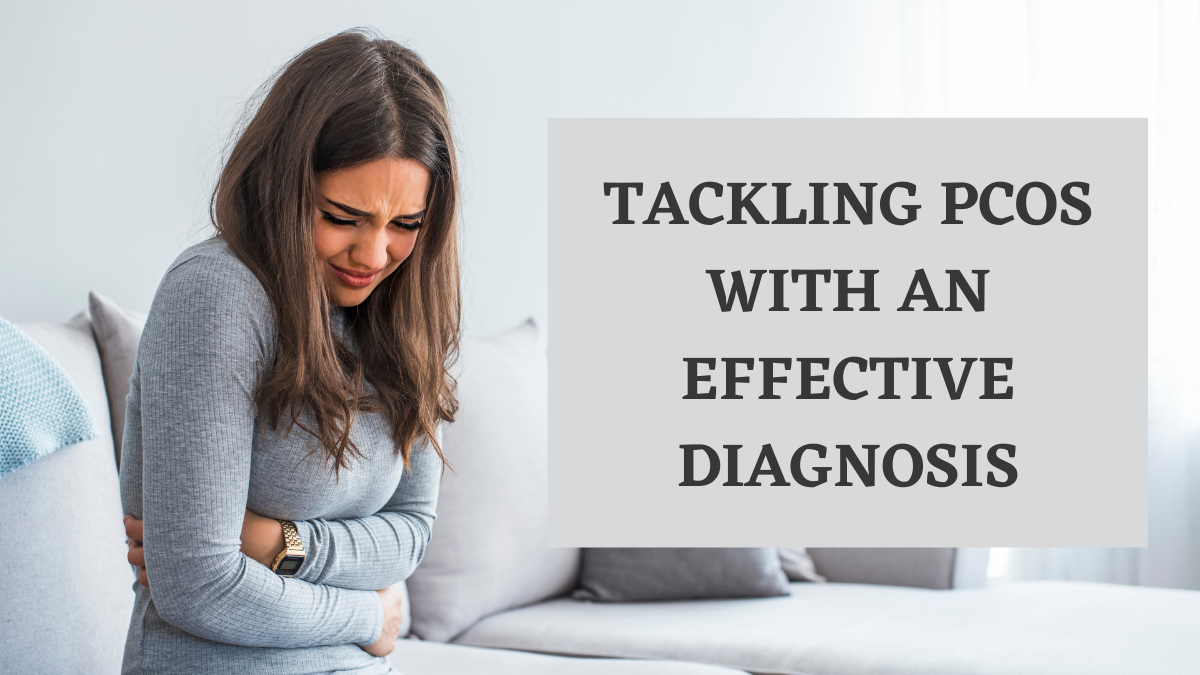Polycystic ovary syndrome (PCOS) is a hormonal disorder common among women of reproductive age and affects how a woman’s ovaries work.

Symptoms
PCOS often develops around the time of the first menstrual period during puberty. Sometimes PCOS develops later, for example, in response to substantial weight gain. Signs of PCOS (or PCOD) are:
- Infrequent, irregular or prolonged menstrual cycles, which means the ovaries do not regularly release eggs (ovulation). For example, fewer than nine periods a year, more than 35 days between periods and abnormally heavy periods.
- Excess androgen which are high levels of “male” hormones in the body, that may cause excess facial or body hair
- Polycystic ovaries, wherein ovaries become enlarged and contain many fluid-filled sacs that surround the eggs
- Trouble conceiving or infertility
- Weight gain or difficulty losing weight
- Thinning hair or hair loss on the scalp
- Oily skin or acne on the face, chest and upper back
- Fatigue and mood changes
Diagnosis
If there are any concerns around menstrual periods or infertility or signs of excess androgen then a doctor should be consulted. There’s no single test to definitively diagnose PCOS. The doctor is likely to start with a discussion of the medical history of the patient, including menstrual periods and weight changes. They may also do the following:
- Physical examination: Measure blood pressure, body mass index (BMI), waist size, and also examine for excess hair on the face, chest or back, acne, or skin discoloration.
- Pelvic exam: A pelvic exam will be performed of the reproductive organs to inspect for masses, growths, or other abnormalities.
- Pelvic ultrasound: This examines the ovaries for cysts and checks the endometrium (lining of the uterus or womb)
- Blood tests: Blood tests check the androgen hormone levels (“male hormones”). The doctor will also check for other hormones related problems such as thyroid. Tests for cholesterol levels and diabetes may also be conducted.
Treatment
The treatment for PCOS is provided by a General Practitioner or a specialist, either a gynecologist or an endocrinologist. There is no cure for the syndrome but there are ways to best manage the condition. Lifestyle changes may be recommended along with the necessary medication. PCOS treatment focuses on managing individual concerns, such as infertility, hirsutism, acne, or obesity, which may include:
- Hormonal birth control or contraceptive pills, or hormone intrauterine device (IUD). For women who don’t want to get pregnant, hormonal birth control can make the menstrual cycle more regular and lower the risk of endometrial cancer.
- A combination of birth control pills that contain both estrogen and progestin which decrease androgen production and regulate estrogen. Regulating the hormones can lower the risk of endometrial cancer and correct abnormal bleeding, excess hair growth, and acne.
- Instead of pills, a skin patch or vaginal ring may also be used.
- Anti-androgen medicines: These medicines block the effect of androgens and can help reduce scalp hair loss, facial and body hair growth, and acne.
- Metformin often used to treat type 2 diabetes may help some women with PCOS symptoms.
- If fertility medications are not effective, a simple surgical procedure called laparoscopic ovarian drilling (LOD) may be recommended. This involves using heat or a laser to destroy the tissue in the ovaries that’s producing androgens, such as testosterone.
Conclusion
PCOS is a common hormonal condition affecting women and can be managed effectively once diagnosed via lifestyle changes and proper medication and treatment.
Special thanks to Dr. Biswajyoti Guha [MD ( Cal) DFFP ( UK) MRCOG ( London) FICOG] for the expert advice.








